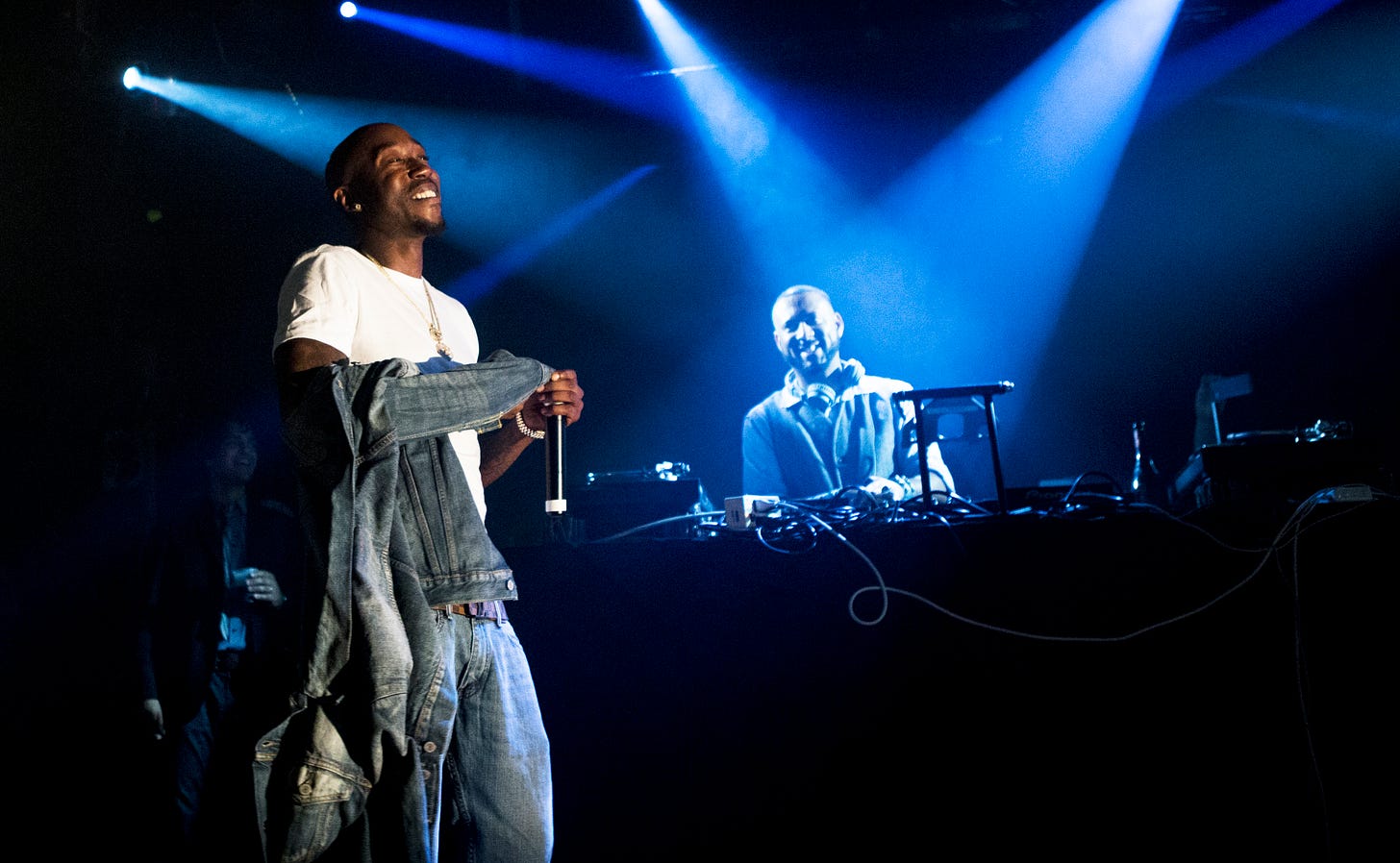Earlier this year, I was reflecting on the Black Lives Matter 2020 movement and noticed a distinct lack of music by hip-hop's most prominent acts connected to the mass struggle in the streets. Millions of people both in America and around the world rose to oppose anti-Black racism and police brutality, responding to the heinous, racist murder of George Floyd—and you almost can't tell from the music released at the time.
It is hardly a surprise that when the genre has exploded in popularity—effectively becoming pop music itself—acts now incredibly wealthy are less likely to make music politically. There is no more remarkable example of this degradation than Kanye West, who went from an underdog early critic of homophobia in hip-hop to a billionaire Christofascist. This is not trivial: One of the genre's greatest and most famous artists has devoted themselves to spreading the gauntlet of far-right ideas from anti-Black and anti-semitic racism to hatred of the rights of women and LGBT people.
When this started happening, I expressed to friends that I didn't see Kanye's bigoted outburst as disconnected from BLM 2020. Instead, I suspected it was intimately connected to the explosion of anti-racist struggle and the growing cultural influence of Black women and queer artists in its wake. At the same time, Kanye's influence was waning due to his putrid politics and saturated, poor-quality music and clothing releases. Today, he confirmed this when he parroted racist conspiracies about the murder of George Floyd, bringing his far-right turn to its roots.
Naturally, I wondered if hip-hop had been irreparably damaged and set adrift by one of its most influential and prominent figures. That filled me with dread—until I relistened to Freddie Gibbs & Madlib's 'Bandana', released the year before BLM experienced its mass resurgence. Is it politically pure if such a thing was possible to demand? Far from it. Gibbs himself comes off as a Black Israelite, sexist and anti-vaxer. But in both form and content, 'Bandana' represents a fundamental truth about hip-hop music: As long as American capitalism exists and must rely on all its racial oppression and nihilistic violence, hip-hop will always be resistance music.
No matter how much the top acts and music industry capitalists commodify the form and consciously conservatise its politics, acts that set out with the simple goal of making hip hop will ensure the genre can never be stripped of its inherent (and latent) radicalism. This simple goal is, I think, what makes 'Bandana' one of the milestone works of modern hip hop. Gibbs carefully laces every track with the devastation and neuroticism of American capitalism and racism, set to disarmingly glamorous Madlib instrumentals. It is a genuinely wince-inducing listen. In their recording process, they created a work embodying life’s contradictions within the conditions that Gibbs luridly describes. For this reason, 'Bandana' will stand for all time—long after the disgraceful reaction of far wealthier artists is one day erased.
"They put Yella Boy on the evening news Devil on my shoulder said, 'Fuck friends 'cause cash rules' Shit's so real, gotta use fake names Every time I sleep, dead faces, they occupy my brain, uh Christina said I never changed (Never changed) Lifestyles of the insane."


